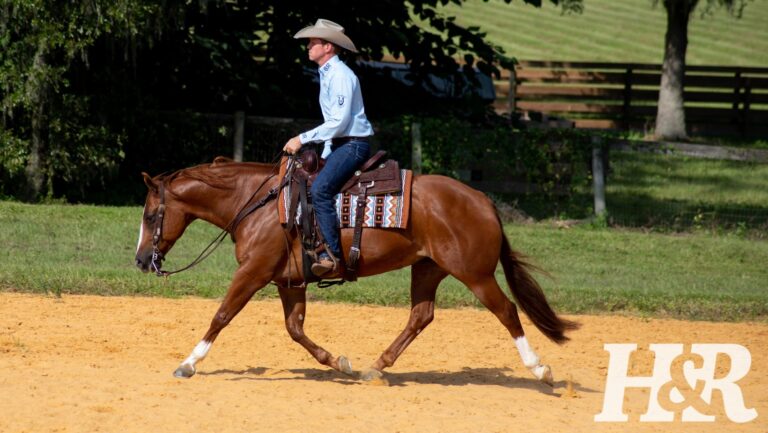This is a difficult topic to talk about. But I’m going to make the case for not overshowing your horse. You probably ride your horse for 30 minutes to an hour a day when you’re at home, or you take an hour-long lesson. But some competitors get to a show and end up riding 10, or even 15 hours a day. They start first thing in the morning and show all day till late at night, only to get up and do it again the next day.
A flat fee day rate with unlimited entries seems like a great deal for a budget-conscious competitor, but it’s not always best for you or your horse to enter in so many classes. Here, I’m going to talk to you about how to make the best choices of classes to show in a day. But ultimately, you must think of the well-being of your horse more than your pursuit of trophies.

Why Not Go All Day?
In a nutshell, it will save your horse. It’ll save his legs, and it will preserve his longevity. Just because a horse is stronger than us, doesn’t mean he’ll be able to handle that kind of workload.
Your horse will get tired when you overshow him, and he might start cheating in his performance. A tired horse will pin his ears, kick the walls, and have a bad attitude. And having a bad ride in the show pen is only going to hurt your confidence.
Acclimating Your Horse
You may think that showing a lot in a day will help your horse get used to showing. But you’d be better off bringing your horse alongside some barn mates to three or four shows before you ever show. Just ride around the grounds, ride in the show pen, tie him up near the activity. Don’t show him at the first horse show you take him to. Wait for him to be ready. Overshowing can end up setting you back.
You can tell your horse is ready when you pull into a horse show, and he acts like it’s just another day. He’s trained, he’s been exposed to traffic and being in unfamiliar surroundings.
Work on Your Jitters
If you need experience in the show pen, start by taking lessons with a reputable horse trainer. One with a good track record in the show pen, but also good character.
The same advice I have for your horse will also work for you. Before you show, go to some horse shows and hang out. Ride your horse around the grounds and warm-up pen. Get familiar with the atmosphere, and you’ll feel more prepared and more confident when it’s your turn to show, without overshowing your horse.

Take Good Care of Your Horse
Part of taking your horse to a show is ensuring his comfort. Bed down his stall with adequate shavings. Monitor his aches and pains and address them with bute after the show if needed. Wrap his legs and apply liniment. Make sure he is fed meals on his regular schedule and has time in his stall to rest. Get off his back as much as possible throughout the day. Make sure he has access to water and hay all day long.
Make a Game Plan
With all the different levels available at shows these days, there are a lot of options regarding which classes to show in. That’s why I recommend making a game plan the day before you show, make a game plan. Perhaps you’ll show in three or four classes total—maybe your trainer will show in Western pleasure and school your horse, and you’ll show in one Western riding, one trail, and one horsemanship class. That’s plenty. This should include everyone in your family who’s wanting to show the horse.
And in between classes, go back to your horse’s stall, take the saddle off or loosen the cinch, and let your horse drink water and eat hay.
If you’re planning your strategy for a particular show, consider where your horse is in his readiness, and show in the classes at that show that he’s most fit for. And make sure your horse is ready to show. However, if you get to the show and he doesn’t feel like he’s quite there yet, you’re better off not showing him, and trying again another time.
Overshowing can harm your horse in various ways. Your goal is to do what is best for your horse and consider his welfare. This will also extend his longevity as a show horse and companion.






